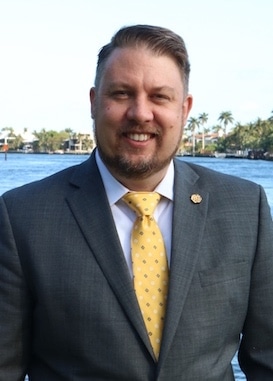As featured in The Island Packet
Maybe you have heard the modern mantra that “God doesn’t call the qualified. He qualifies the called.” Well, like many sayings today, I think we need to be careful how we interpret that slogan.
Typically, the place where I have heard this refrain professed the most is throughout social media via the younger and/or less empowered generation. But its reach is actually far greater than that and has extended itself deep into the far reaches of Judeo-Christian thought.
This is probably the case because, as with most catchy motto’s, the sentiment has a distinct aspect of truth to it. Often, a precursor to the phrase is a reminder that the vast majority of us, even Biblical characters, have our flaws or limitations. “Noah got drunk, Abraham was really old, Sarah was impatient, Isaac played favorites, Jacob was a cheater, Moses was a murder with a speech impediment, Samson was a womanizer, David had an affair, Elijah was moody, Peter was impulsive, Zaccheus was too short, Thomas doubted the Lord, Paul persecuted God’s people…” and so on and so forth. The valid point being, what then is our excuse for not letting God use us?
This usage of the slogan -“God doesn’t call the qualified. He qualifies the called.”- thus inspires us as imperfect underdogs of all sorts to step up to the call of God in our own lives. I think few, even the religiously skeptical, would argue that people should allow their failures to constrain their positive potential for improvement and generally doing Good.
That being said, I have also observed that the motto has developed another less positive sentiment as well. Many have begun to use these words as a catch phrase for entitlement to immediate power. A wise pastor friend of mine once told me “Christ’s family as the church is open freely for all to choose to be part of, but that does not entitle persons to positions of power within it.”
When I first heard my friend’s statement, I have to admit, it seemed pretty harsh. But upon reflection, I think that it is true – for God calls us each to service and thus equips us each according to our need. What I think we must remember is that such equipping may take different durations for each of us. Whatever that duration for us personally we tend to forget that, contrary to the entitlement philosophies of the modern world, God is preparing us because of God’s deep and present affection for us. As such, power for the Christian in this world is to be used for the glorification of God alone. All other preparation is, as 1 Thessalonians 5:23 says clearly, to sanctify us completely so that our whole spirit and soul and body may be kept blameless at the coming of our Lord Jesus.
In short, obtaining power is not a contest for the Christian because we believe that all authentic power originates only from one source. This perspective, different from entitlement theories, motivates and encourages us to continue to better ourselves – understanding that the God of all creation, of all power, of all authority, cares for us so much that he refuses to be content in letting us settle for something less than what God has called us to be.
We can take comfort in such care because it means that, whatever the duration of that preparation, for what ever purpose to which we are called, we have the sure and steadfast knowledge that throughout it all we are not only being qualified for the task at hand but we are, more importantly, being incomparably loved in the process.





























